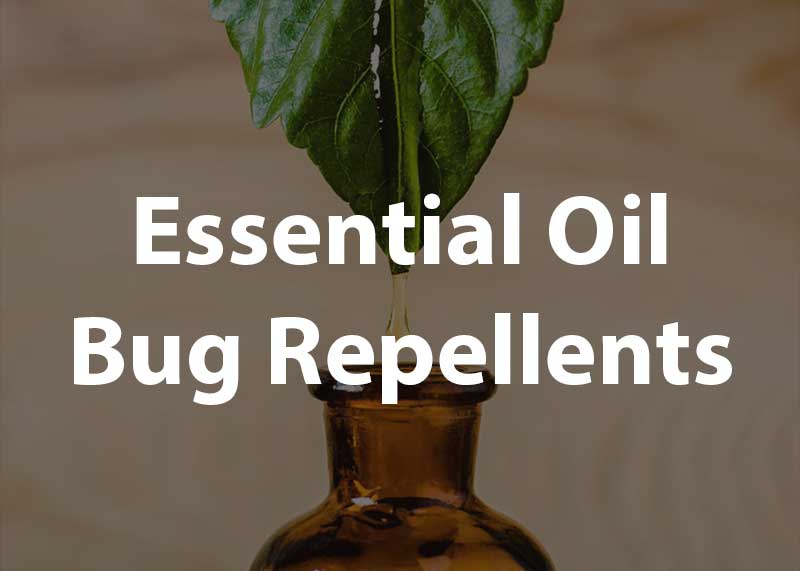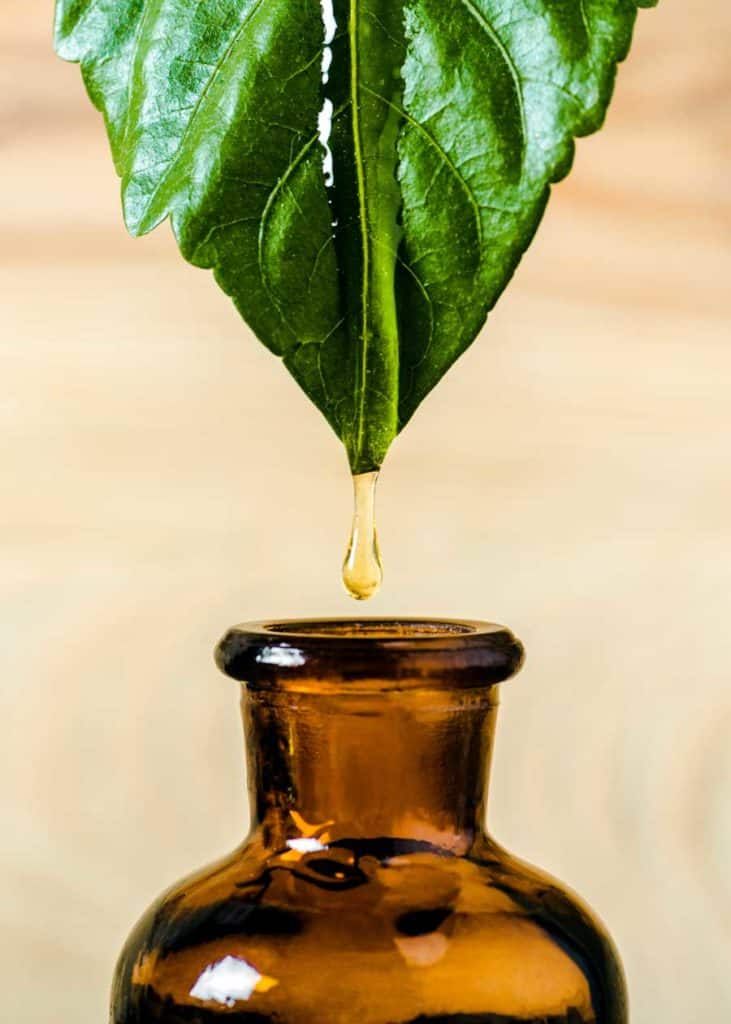Essential oils are effective for repelling, even killing, many bugs and flying pests. In this guide, you’ll learn about the best essential oil bug repellents and how to use them.

Table of Contents
Guide to Essential Oil Bug Repellents
Here are all the guides we’ve created so far. Have a suggestion or experience to share? Please post it in the comment section below.
Some of the following guides focus just on essential oils. Others include essential oils as part of an effective strategy to get rid of bugs.
How to Use: Each headline leads to a full article with research about using essential oils for specific bugs and insects.

17 Smells that Flies Hate: Scents to Get Rid of Flies

Does Peppermint Oil Repel Roaches? How to Mix, Apply, Toxicity

11 Essential Oils for Cockroaches: Repelling Guide for Homeowners

Tiny Black Bugs at Home? 9 Biting Types (How to Get Rid of Them)

12 Gnat Repellent Essential Oils: Peppermint Oil, DIY Recipe

17 Essential Oils to Repel Wasps: Science-Based (Recipe)

10 Essential Oils to Repel Spiders (+Peppermint Recipe)

7 Essential Oils For Ants: Naturally Repel & Kill (Mint, Clove, Lemongrass…)

Science Behind Essential Oils for Bug Repellent
While essential oils have been claimed to do many (unproven) things, there is sound science in using essential oils to repel and kill bugs and other insects.
Here are a few references to scientific studies.
American and German cockroaches had knockdown (KT50) values of ≈7.4 and 9.2 h, respectively, when fumigated with 50 µl of 100% mint oil; 100% of both species were killed after 24 h.
Mint oil-based formulations could provide another integrated pest management tool for cockroach management, especially in situations in which conventional insecticides would be inappropriate.
Department of Entomology and Plant Pathology, Auburn University, Auburn, Alabama (view study in pdf, via archive.org)
Here’s a 2018 study, Essential Oils as Repellents against Arthropods, published in the National Library of Medicine, that addresses how essential oils work to discourage arthropods from landing or biting.
Many essential oils are toxic to animals (and humans). They are so toxic, that you must use caution when using them around your pets, according to the Pet Poison Helpline.
Learn more about the specific application in each article.
Bug Skills
Interested to learn more about bugs and managing them around your home?
Check out these related guides: Bug Identifier | Bug Facts | Bite & Sting Treatment | Cockroach Guide

Your Turn
Have a suggestion or experience to share when using essential oil as an insect repellent? Please post it in the comment section below.
- About the Author
- Latest Posts
Bryan Haines is a co-founder and writer at The Buginator. And is working to make it the best resource for taking back the outdoors from biting, stinging pests.
He also blogs about travel at Storyteller.Travel and photography at Storyteller Tech. Bryan is a partner at Storyteller Media, a publishing company he runs with his wife, Dena.
